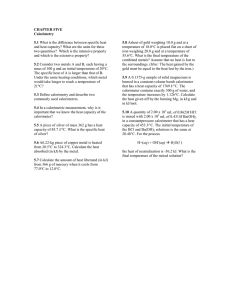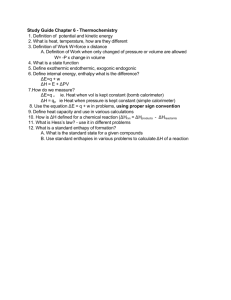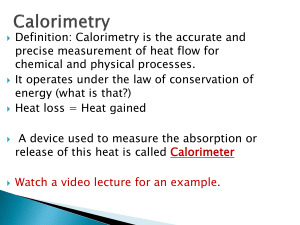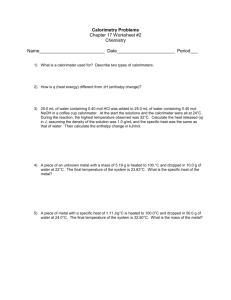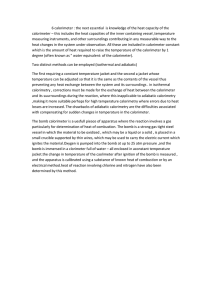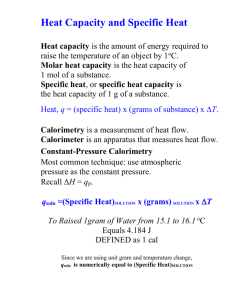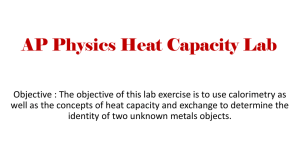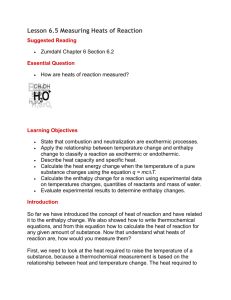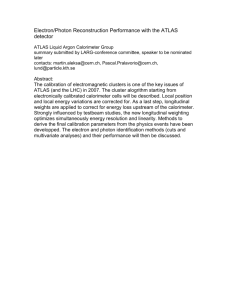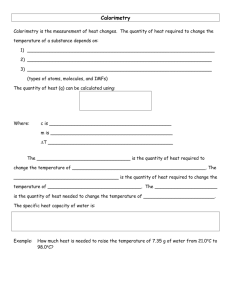Calorimetry
advertisement
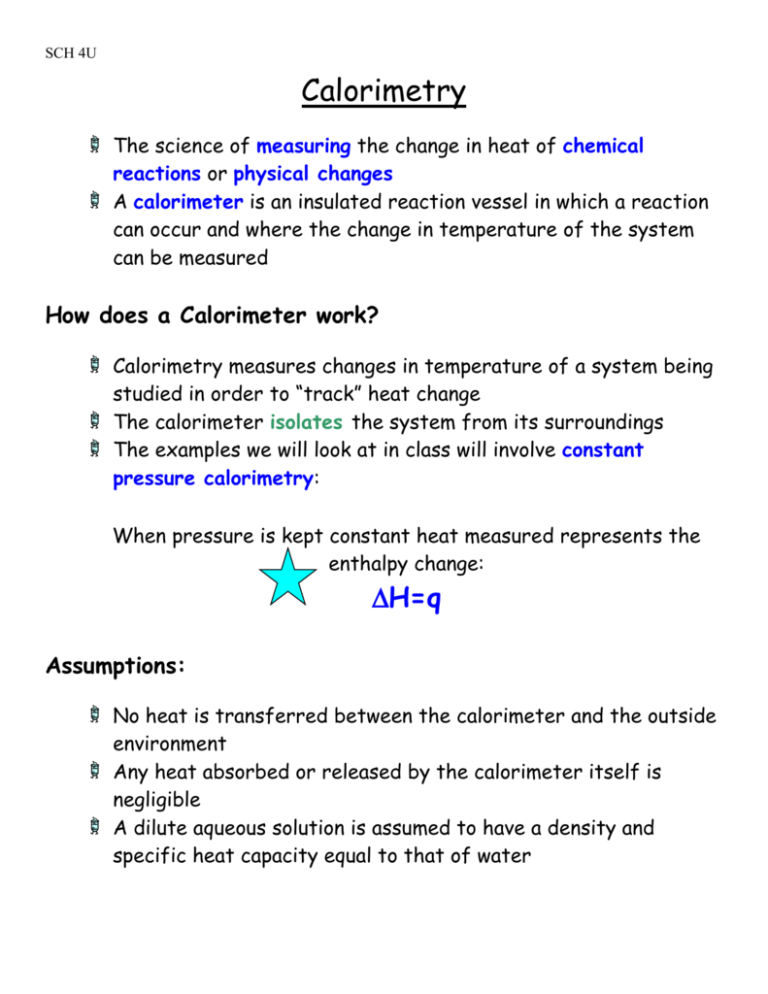
SCH 4U Calorimetry The science of measuring the change in heat of chemical reactions or physical changes A calorimeter is an insulated reaction vessel in which a reaction can occur and where the change in temperature of the system can be measured How does a Calorimeter work? Calorimetry measures changes in temperature of a system being studied in order to “track” heat change The calorimeter isolates the system from its surroundings The examples we will look at in class will involve constant pressure calorimetry: When pressure is kept constant heat measured represents the enthalpy change: H=q Assumptions: No heat is transferred between the calorimeter and the outside environment Any heat absorbed or released by the calorimeter itself is negligible A dilute aqueous solution is assumed to have a density and specific heat capacity equal to that of water SCH 4U Types of Calorimeters Coffee-cup calorimeter (figure below) Bomb calorimeter Coffee-cup Calorimeter Limitations: Cannot be used for reactions involving gases Cannot be used for high temperature reactions SCH 4U Bomb Calorimeter Reaction takes places in a sealed metal container Temperature difference of the water is measured Calculations are more complex because they must take into account heat flow through the metal container
